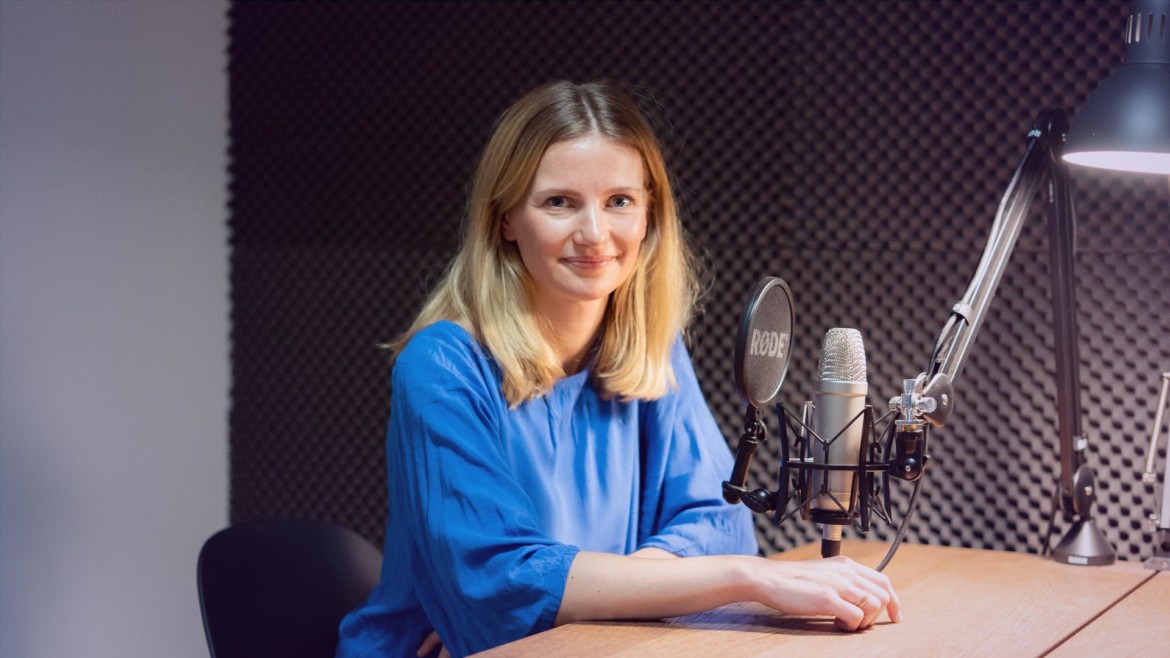Knowledge of the work and function of the chamber of industry and commerce is usually limited to the taking of final examinations in apprenticeship occupations. What remains undiscovered, on the other hand, is that the IHK also represents the interests of its members and offers services and assistance in the area of business law.
One-Sided Correspondence
This also applies to the creative industry, which is usually only known by those creatives who have registered a business and then received welcome mail from the responsible IHK. Responsibility depends on the region in which the business was registered. Nationwide, 315,000 companies in 79 regions, each with its own IHK, are obligatory members. However, not all companies have to pay the fee. And so the relationship between many of these companies and their IHK is often limited to one-sided correspondence.
Katrin’s job is to change this for her industry. As a sector manager for the creative industries, she seeks out the creative members of the Industrie und Handelskammer on a daily basis. Indispensable for this: experience in the creative industry.
Loyal to the creative industry
Katrin has plenty of that. Following her great passion for film production, she went to the Babelsberg Konrad Wolf Film University to train in film and television production as well as line production. This was the best basis for becoming a production assistant on the set of the documentary specialists at zero one film.
The addition to the family made Katrin look for a career change. But she didn’t really want to turn her back on the creative industry. And so she landed at the Medienboard Berlin-Brandenburg’s cultural promotion department, where she could be close to her passion from a different angle, so to speak, and advocate for the creative people in this country. From there, the mental step to the IHK was not quite so far.
“DO you Even fit in?”
But when she was on her way to her job interview and had given a lot of thought to her outfit beforehand – after all, the Chamber of Industry and Commerce doesn’t sound like a creative attitude – she was overcome by a slightly queasy feeling and wondered whether she would even fit in. As it turned out, this was all in vain. To her surprise, the Chamber of Industry and Commerce was much less dusty than she had feared: “I learned that a Chamber of Industry and Commerce can be innovative, young and fresh,” says Katrin.
Her past in the creative industry turned out to be not only a nice plus, but a basic requirement for the position as industry manager, which speaks for a certain sensibility in the ranks of the Berlin IHK. And so Katrin also sees no contradiction at all to being creative in her new job. “I get to meet so many new companies every day that are creative in their own way and with whom I can exchange ideas. That’s really cool!”
cross-industry synergy effects
The task of an industry manager at the Chamber of Industry and Commerce is best broken down into three key words: Support, networking and representation of interests. Members receive support, for example, in questions of labor law, which are answered by trained lawyers. In the event of disputes, the IHK also offers free legal advice, although the IHK must of course remain neutral here and cannot be held liable. In addition, the IHK prepares corporate law documents for its members on request, which can be worth its weight in gold for members in the German bureaucratic jungle.
The aim is to network across all sectors. So when Katrin organizes a networking event in her district of Friedrichshain-Kreuzberg, the main aim is to bring together locally based companies, as they often have similar problems and can benefit from each other.
So at a film premiere for the Berlinale 2020 at the Kino am Südstern, which Katrin had organized, not only film, art and media professionals were invited, but also the hairdresser and the snack bar from across the street. Since the IHK gathers all industries with itself, this becomes possible and it can achieve local synergy effects. “We are not an association and so we don’t have to be industry-specific, but can tackle the things that affect every business,” Katrin explains. She is currently planning an event on sustainable business, which will of course take place digitally.
“DO YOU WANT TO KNOW wHAT we ACTUALLY DO?”
However, the most important function of the IHK is the representation of interests. In constant dialog with representatives from the industry, Katrin collects information on current problems, wishes and demands, which are then bundled and passed on to politicians. In other words, the IHK does a certain amount of lobbying. However, Katrin is not responsible for contacting politicians. She is primarily responsible for communicating with members and trying to make the chamber’s work more transparent, which most people don’t even know what it consists of: “I approach the companies and say, ‘You’re a member, aren’t you? Do you want to know what we actually do?’ And most of them want to know.”
Who has to pay And who does not?
The members’ contributions guarantee the financial independence of the CCI, so that it can collect information from the industries and pass it on to politicians without any conflict of interest. The contributions of its members, which depend on the amount of the trade income, follow the principle of solidarity, since all receive the same benefits. Exempt from the obligation to pay contributions are those companies that are not registered in the commercial or cooperative register and whose annual income is less than 5,200€.
Since 2004, a special regulation has also applied to natural persons whose annual income is below 25,000€. In the first two years of business activity, they do not have to pay a membership fee, and in the first four years they do not have to pay any apportionments. Here, too, the benefits remain the same. Many creative professionals with low and changing earnings benefit from the solidarity principle. If you are planning to start your own business, you can calculate your expected contribution here. Then you will know what to expect. Because the calculation comes simultaneously with the welcome letter.
Katrin’s job and contact with the companies is extremely important so that the interests of the companies can be recorded and passed on to the politicians: “Our job is to pass on overall interests. Where are we going to get those if we don’t talk to people?”
Need of improvement
The Industrie- und Handelskammer (IHK) fulfills important tasks and offers good services, which far too few people know about, even though they pay the annual fee. There is definitely still a need for improvement here. Katrin is still relatively new in her young team and has a lot of plans. She could also imagine new and digital formats for member communication. Not releasing the podcast, however, seems like a step in the wrong direction to us, as the podcast would have created an open and transparent image of the IHK. So, unfortunately, in the weeks following the recording, some dust has again trickled onto the image of the IHK.






Leave a Reply